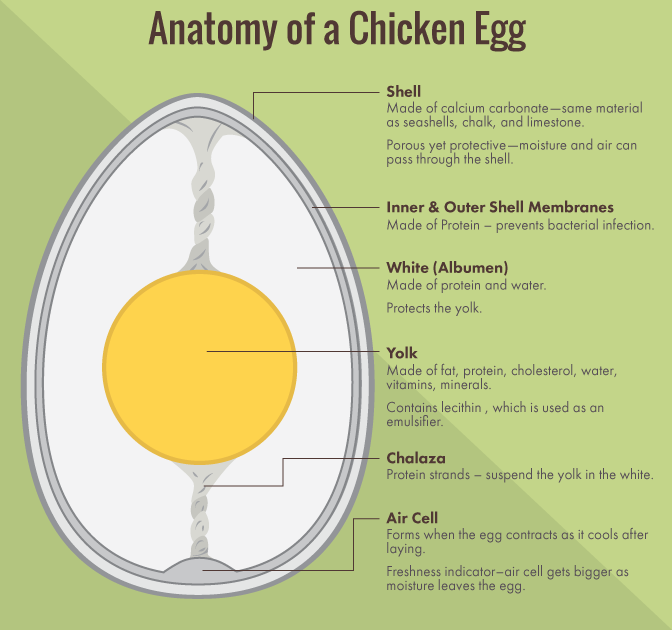Egg confusion! Unscrambling the latest research on eating eggs
Recently, a reader asked me to peel back the latest nutrition advice on eggs. In particular, he requested some clarity on conflicting advice for people with diabetes. Are eggs OK to eat again? Or is the advice different for people with diabetes?
About this time, another reader sent me a press release from Northwestern University, announcing the results of a March 2019 JAMA study, to wit, “higher egg and cholesterol consumption hikes heart disease and early death risk.”
What gives?
Don’t worry, says Ted Kyle, founder of Conscienhealth.org, a non-profit dedicated to helping experts and organizations work for evidence-based approaches to health and obesity. The whiplash you’re feeling from conflicting advice about the safety of eating eggs stems from the media’s penchant of publishing a conclusion that is not arrived at in the actual study.

As Ted writes, “In JAMA, a new pooled analysis of six observational studies found an association between eating more eggs and a higher risk of cardiovascular disease and death. This finding comes just four years after scientific experts reached a consensus that “cholesterol is not a nutrient of concern for overconsumption.”
This conclusion was from the Scientific Report of the 2015 Dietary Guidelines Advisory Committee.” Ted notes that the most important finding of the new study is its limitations! He advises that the study findings are observational and cannot establish causality.
Professor Madelyn Fernstrom, Ph.D. is an award-winning clinician, scientist, health journalist, and author, and the Health & Wellness Consultant for NBC, including The Today Show. Fernstrom reports, “You can relax. Eggs remain a nutrient-rich healthful choice when eaten in moderation. While this study sounds strong, there are a lot of gaps in information and assumptions that can be both misleading and confusing.”
Dietary Cholesterol vs. Blood Cholesterol
The current 2015-2020 USDA Guidelines state that, rather than contributing to high cholesterol and risk for heart disease, “dietary cholesterol is not considered a nutrient of concern for over-consumption… available evidence shows no appreciable relationship” between heart disease and how much dietary cholesterol you eat.
Which means — you can eat more eggs? Maybe!
Following years of research and input from scientific studies, health expert’s advice has changed from limiting eggs to liberalizing them. As reported in the Harvard T.H. Chan School of Public Health, previous advice was “based on guesswork.” They explain that since the artery-clogging plaques that cause heart disease are made mostly from cholesterol, and since eggs contain cholesterol, it was commonly believed that eating eggs posed a risk for heart attacks.

Eggs pack a bunch of great nutrition in one small and inexpensive package.
Egg-cellent Nutrition
- Eggs pack a bunch of good nutrition in a very small package and are a potent source of a variety of healthful nutrients, including vitamins and minerals.
- A chicken egg has only about 80 calories each and packs seven grams of high-quality protein. The white has about four grams of protein, the yolk about three grams — the yolk contains a significant amount of brain-nutrient choline, plus vitamin B12, and iron.
- Vitamin D: Eggs are one of the few food sources of vitamin D, plus they’re a good source of vitamin A, carotenoids lutein and zeaxanthin, helpful in reducing the risk of age-related macular degeneration, the leading cause of blindness in older adults.
- Cholesterol plays a number of vital roles in body chemistry. In our body, cholesterol is a component of all major sex hormones, including estrogen, progesterone, and testosterone. It’s part of our immune system, and it’s needed for brain function.
- Cholesterol is necessary for the formation of cell membranes, vitamin D, and bile acids, which aid in digestion and vitamin absorption. We make most of our body’s cholesterol in our liver from dietary fat, carbohydrates and proteins.
- Cholesterol is found only in animal foods, and in some more than others. For example, one egg yolk contains about 184 mg, an ounce of chicken liver contains 158 mg, and an ounce of wild sockeye salmon only 24 mg.
- Very early in the 20thcentury the “lipid hypothesis” linked consumption of cholesterol-rich foods and saturated fat to clogged arteries. Subsequent research has helped consumers separate fat from facts.
- For most people, eating eggs or other otherwise healthy foods such as shrimp or lobster does not mean a higher risk for heart disease — the body typically self-regulates and produces less blood cholesterol in response to more dietary cholesterol.

What About Eggs and Diabetes?
Since people with diabetes have a higher risk for heart disease, it may be prudent to limit to about one whole egg daily, or less, without a limit on egg whites.
Nancy T. Smith, Lead Dietitian for Tallahassee Memorial Hospital Metabolic Health Center in Tallahassee, Florida and a diplomat of the Accreditation Council for Clinical Lipidology/Clinical Lipid Specialist since 2013, notes that in 2015, the National Lipid Association, based on research, published recommendations that advises limiting dietary cholesterol to less than 200 mg daily (one whole egg has 184 mg) for people who need to lower atherogenic lipids, as people with diabetes do.
I wrote to Nancy and she replied: “I generally recommend that my patients with diabetes limit egg yolks to 3 or less per week.” Read the recommendations from the Journal of Clinical Lipidology here.
A 2017 study published in the Canadian Journal of Diabetes looked at the relationship between egg consumption and risk for heart disease in people with type 2 diabetes and concluded, “Results from randomized controlled trials suggest that consumption of 6 to 12 eggs per week, in the context of a diet that is consistent with guidelines on cardiovascular health promotion, has no adverse effect on major CVD risk factors in individuals at risk for developing diabetes or with type 2 diabetes.”
Conflicting advice here. One dietitian advises limiting egg yolks for people with diabetes… The Canadian org advises a more liberal consumption of eggs but …and pay careful attention to the Canadian diabetes organization’s statement because it says …
In the Context of a Heart-Healthy Diet!
There is no equivocation in this statement. It’s your total diet — what you eat day-by-day — that contributes to health or is harmful.
Whole foods, plant-based diets promote good health for everyone and are especially good for weight management and blood glucose control. Period. End of sentence.
Just stay with whole foods — ditch refined carbs like white rice and deep-fried potatoes – and choose grilled, baked, or broiled potatoes, scrub the skin and savor the chew. Skip greasy and refined animal fats such as ‘vegetable oils’ in favor or cold-pressed, virgin (first pressed) oils. Limit white flour products like bread and pasta but include quinoa and all starchy vegetables, just watch your portion size. Steer clear of juice in favor of whole fruit, and just ignore all beverages with added sugar — drink water — Cuenca water is some of the best in South America.
Excess sugar, especially from beverages, is reliably linked inflammation and increased risk for heart disease. Gain health and immunity from eating a whole-foods diet that includes healthy fats, mostly from plant sources like nuts, seeds, and avocado and olives; limit red meat, avoid processed meats (high in sodium and nitrites) and enjoy fish and dairy if you wish. And what about… eggs?
Eggs — be selective about the company they keep

Skip this calorie bomb. Eggs Benedict from one popular breakfast chain come in at a whopping 1,050 calories and 57 grams of fat.
People with type 2 diabetes typically need to watch their weight, since overweight and obesity is a proven risk factor for this disease. And although eggs can be safely incorporated into any heart-healthy diet, it’s not the eggs that most people need to be careful of, it’s the additions.
Jill Weisenberger, a registered dietitian, and certified diabetes educator wrote to me that based on the most current research, she’s comfortable recommending whole eggs to her clients with diabetes. She says, “I truly believe this has to do with the company eggs keep. If you eat eggs with bacon and biscuits, you’re likely to have a different outcome than if you eat eggs with veggies, whole wheat toast, avocado, and fresh fruit.”

Susan’s frittata with tomatoes, onions, garlic, and mushrooms.
My favorite egg-inspired dish is an open-faced omelet, a frittata: eggs whipped and cooked in a nonstick skillet with a little olive oil, with plenty of chopped vegetables (my favorites are garlic, onions, bell peppers, mushrooms and sometimes, spinach), and topped with crumbled feta or shaved Parmesan cheese (both naturally low in saturated fat). Email me for the recipe.
The Takeaway Bonus! Five Fun Egg Tips
- Having a hard time getting your hard-boiled eggs to cook properly? Bake them! I just experimented and I’m happy to report, it works! Preheat your oven to 325 F (163 C), put the eggs into a muffin tin (allow the eggs to reach room temp first if they’re refrigerated) and bake for 30 minutes. Then immediately place the eggs into a big bowl of ice water until cool. They peeled just fine, no green ring, great texture.
 Click here for detailed instructions from Wikihow.com
Click here for detailed instructions from Wikihow.com - Try what I’ve heard is the most reliable way to cook hard-boiled eggs — in a pressure cooker! ‘Pressure steam’ eggs, at low pressure.
- How to tell if the egg is fresh? Float it! Fill a bowl with water, gently drop the egg in, and if it sinks to the bottom and lies flat, it’s fresh. The older it is, the more likely it is to float. The air pocket in the fat portion of the egg increases in size the older an egg gets. The older the egg, the less nutrition it has.
- In plenty of countries and here in Cuenca eggs are sold unrefrigerated — washing removes the “cuticle” that keeps them fresh so wash your eggs only when you’re ready to use them. Crack on a flat surface and not on the rim of a bowl as to not push any bacteria into them. An unrefrigerated egg will stay fresh, unwashed, for at least two weeks, and unwashed and stored in the refrigerator, about two to three months. Once refrigerated keep them refrigerated.
- You can freeze eggs! Not in the shell, but blend the whites and eggs and store in the freezer, and thawed they’re great for scrambled eggs, quiches and any recipe calling for whole eggs. Learn more here.

You can freeze egg whites, egg yolks, or even whole eggs (after they’ve been cracked). Credit: CupCakeProject.com
Sources
American College of Allergy, Asthma & Immunology. Egg Allergy.
British Medical Journal. Egg consumption and risk of coronary heart disease and stroke
Canadian Journal of Diabetes. Impact of egg consumption on cardiovascular risk factors in individuals with type 2 diabetes and at risk for developing diabetes: a systematic review of randomized nutritional intervention studies.
ConscienHealth.org. A yo-yo diet of misinformation about eggs.
Harvard T.H. Chan School of Public Health. Eggs, fats, and the new dietary guidelines.
Health.gov. Dietary Guidelines for Americans 2015-2020. Eighth Edition.
JAMANetwork.com. Associations of Dietary Cholesterol or Egg Consumption With Incident Cardiovascular Disease and Mortality. Journal of Clinical Lipidology. National Lipid Association Recommendations for Patient-Centered Management of Dyslipidemia: Part 2.
Journal of Lipid Research. In celebration of the 100th anniversary of the lipid hypothesis of atherosclerosis.
NYTimes.com. Are eggs bad for your health? Maybe.
Today.com. Eggs and cholesterol: Why a new study may be misleading.
Susan Burke March, a Cuenca expat, is a Registered and Licensed Dietitian, a Certified Diabetes Educator who specializes in smart solutions for weight loss and diabetes-related weight management. She is the author of Making Weight Control Second Nature: Living Thin Naturally—a fun and informative book intended to liberate serial dieters and make healthy living and weight control both possible and instinctual over the long term. Have a question for Susan? Email SusanTheDietitian@gmail.com




















